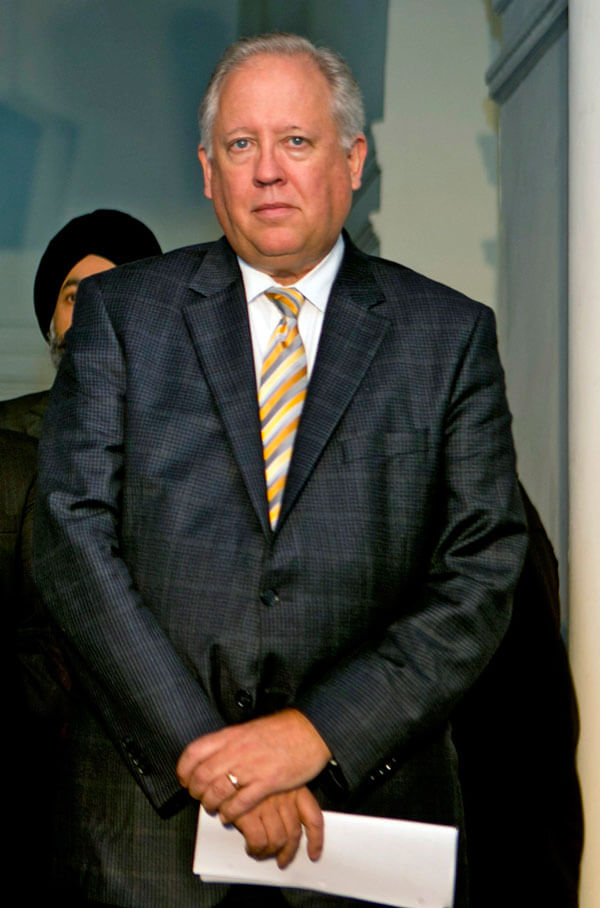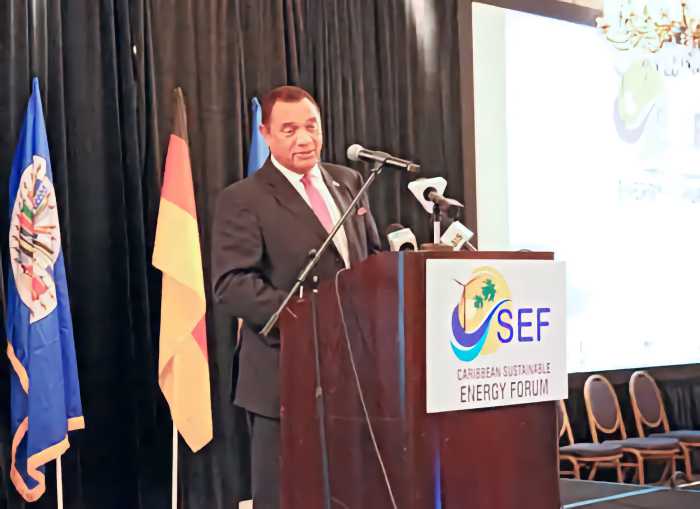The United States Department of State says two top officials have arrived in Haiti amid concerns over the ongoing political process in the French-speaking Caribbean country.
The State Department said that Amb. Thomas A. Shannon, Counselor of the Department of State, accompanied by Haiti Special Coordinator and Deputy Assistant Secretary Kenneth Merten, left Washington, D.C. on Wednesday.
“Their visit takes place in the context of ongoing efforts in Haiti to complete the electoral process,” the statement said. “The elections will allow a new government and parliament to address the other challenges Haiti faces in achieving economic growth and sustainable development.”
The State Department said Shannon will discuss the “importance of Haiti as a long-standing partner of the United States.”
In consultation with representatives from various sectors, the department said Shannon will “reaffirm the broad-based nature of the bilateral relationship and U.S. support for Haiti’s social, economic and political development.”
On Tuesday, for the second time in two weeks, United Nations Secretary-General Ban Ki-moon voiced concern at political developments in Haiti, urging the authorities and all political actors to resolve outstanding issues as soon as possible.
Jovenel Moise, from the governing party, and former government executive Jude Celestin, the two top vote getters in the first round of presidential elections on Oct. 25, were set to face each other in a run-off on Dec. 27, but that was postponed.
“The Secretary-General recalls that Parliament has not functioned since January 2015,” said a statement issued by Ban’s spokesperson. “He underlines the importance of inaugurating the new legislature within the constitutional time frame to ensure the renewal of democratic institutions and consolidate political stability in Haiti.”
He called for the electoral process to be “concluded as soon as possible in a transparent, inclusive and credible manner.”
Ban’s Special representative in Haiti, Sandra Honoré, and the so-called “Core Group” — Brazil, Canada, France, Spain, the United States, the European Union, as well as the Organization of American States — on Tuesday also called on State institutions and political actors in Haiti to ensure a peaceful transfer of power to a newly elected president by the constitutionally mandated date of February7.
In his earlier statement, Ban noted efforts by all stakeholders, including the establishment of an electoral evaluation commission, to address the concerns of opposition parties and ensure the successful and timely conclusion of the presidential elections, stressing that “the responsibility of all political actors to discourage violence and encourage a spirit of unity throughout the country.”
Ban reaffirmed the commitment of the UN Stabilization Mission in Haiti (MINUSTAH) and the entire UN system to continue supporting the Haitian people in the fulfilment of their democratic aspirations.
The Mission, set up in 2004, has more than 4,500 troops and police deployed in Haiti, with a mandate that has evolved over the years from supporting a transitional government to embracing earthquake recovery and facilitating the political process.
On Haiti’s 212thanniversary of their Independence Day, on Jan. 1, US Secretary of State, John Kerry called for “free, fair and transparent” elections in the French-speaking Caribbean country, saying that it will attract broad participation and reflect the will of the people.
In congratulating the citizens of Haiti on its anniversary, Kerry said that, said, as nationals pause to take stock of more than two centuries as an independent state, “they also have an opportunity to more fully realize the democratic governance they so greatly need and deserve.”
In this nexus, Kerry urged the country’s leaders to work together to organize the elections and to inaugurate a new president by Feb. 7, as mandated by the national constitution.
Kerry said that when he visited Haiti last October, he noted that “Haiti’s future depended on the unity of its people and the country’s ability to develop strong and stable democratic institutions.
On Saturday, Haiti’s President Michel Martelly announced that the run-off election to choose his successor will be held on Jan. 17.
The run-off was scheduled to take place two weeks ago, but was jettisoned after opposition factions alleged fraud during the first round in October.
A special commission was asked to investigate the electoral process following widespread street protests, according to the British Broadcasting Corporation (BBC).
In his speech on Independence Day, Martelly, who is constitutionally prohibited from seeking re-election, urged nationals respect the election rules and go to the polls.
He said that Haiti’s Provisional Electoral Council had warned him that to fulfil the constitutional mandate of inaugurating a new president on Feb. 7, the runoff must be held by Jan. 17 at the latest, according to the BBC.



























